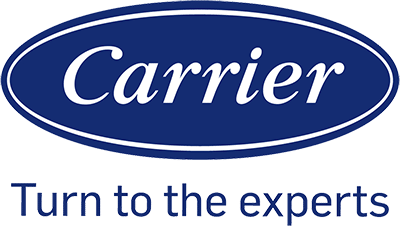Understanding HVAC Systems

HVAC is an abbreviation for Heating, Ventilation, and Air Conditioning. These systems are pivotal for maintaining indoor air quality and comfort in both residential and commercial settings. Below we outline the fundamental components and objectives of an HVAC system:
- Heating: This component is responsible for maintaining warmth, commonly achieved through a furnace or heat pump. It’s essential for energy efficiency to ensure the heating unit is properly sized and maintained.
- Ventilation: Ventilation controls air flow, eliminates odours, and regulates moisture, which is crucial for good indoor air quality. Options include natural methods, like windows, or mechanical methods, such as fans.
- Air Conditioning: An A/C unit removes heat and moisture, keeping environments comfortably cool. Like heating components, proper sizing and maintenance of the air conditioner boosts energy efficiency.
Our goal is to reduce energy consumption while optimizing comfort. Here’s how we do it:
- Regular maintenance: Performing routine check-ups helps to preserve the efficiency of the system.
- Filter replacement: A clean filter assures better air quality and enhances overall system efficiency.
- Upgrades: Implementing the latest technology can significantly improve energy efficiency.
We prioritize developing systems that not only excel in performance but also contribute to energy savings and healthier living environments. HVAC systems must be finely tuned to balance air distribution and minimize energy use. By understanding these systems, you provide yourself with the knowledge needed to make informed decisions about HVAC maintenance and upgrades, which can ultimately lead to savings on energy bills and a better living space.
DIY HVAC Maintenance Essentials

Maintaining our HVAC system ourselves can seem daunting, but with the right knowledge and tools, we can effectively clean, inspect, and troubleshoot basic problems. Let’s focus on essential DIY maintenance tasks that keep our air conditioning unit in top shape.
Routine Cleaning and Inspection
-
Cleaning: Regular cleaning of our HVAC system prevents dust and debris from clogging and straining the system. We make sure to gently clean the outdoor unit’s fins with a soft brush and to clear any surrounding foliage that might restrict airflow.
-
Inspection: We conduct a visual inspection of the outdoor unit for signs of wear or damage. It’s imperative to inspect the condensate drain as well, ensuring it is not obstructed.
Managing Filters and Vents
-
Air Filters: Replace or clean air filters every 90 days, or as recommended by the manufacturer. This is crucial, as dirty filters restrict airflow and reduce efficiency, pressuring the HVAC system.
-
Vents: We check all vents and registers to ensure they’re clear of obstruction. This includes furniture or drapes that might block air distribution, maintaining consistent airflow and temperature.
Basic Troubleshooting
-
Thermostats: If our HVAC is acting up, we start by checking the thermostat. A quick reset or new batteries might be the simple fix we need.
-
AC Repair: For more complex issues, we consult the owner’s manual for basic troubleshooting tips before deciding if professional services are needed.
By adhering to these fundamental DIY HVAC maintenance activities, we extend the life of our air conditioning unit and ensure it runs at peak efficiency. Remember that while we can handle many aspects of HVAC maintenance, some tasks are best left to professionals.
When to Seek Professional HVAC Services

When it comes to HVAC systems, certain scenarios require the expertise of professionals to ensure safety, efficiency, and longevity.
Complex Repairs and Installations
Attempting complex repairs or installations without the proper expertise can lead to safety hazards, including the risk of fire hazards or electrical work incidents. Professionals possess the technical knowledge necessary for troubleshooting difficult problems. Additionally, HVAC contractors are trained to handle refrigerant leaks which, if not addressed correctly, could lead to environmental harm. When it involves the replacement of a condenser or intricate ductwork, hiring a professional is indispensable.
- Key Considerations:
- Electrical hazards
- Refrigerant handling
- Adherence to local codes
Regular Maintenance Plans
A well-structured maintenance plan is critical to extend the lifespan of an HVAC unit. Professional maintenance services offer scheduled inspections to prevent small issues from becoming costly repairs. Subscribing to a professional maintenance plan also often includes priority service and discounted rates for labor and parts, should HVAC repair be needed.
- Benefits:
- Ensures longevity and efficiency
- Prevents unexpected breakdowns
- Provides peace of mind
Handling Specialized Tasks
Certain HVAC tasks require specific expertise that only trained technicians can offer. This includes annual duct cleaning to improve indoor air quality and specialized inspections to ensure the system is operating safely and efficiently. Professionals are also essential for tasks that comply with federal and local codes, such as refrigerant handling and electrical work related to HVAC systems. Opting for a professional repair service is the safest choice when your system requires a knowledgeable approach to these specialized tasks.
- Specialized Services Include:
- Duct cleaning
- Safety inspections
- Code compliance
Costs and Considerations for HVAC Upkeep
Maintaining our HVAC system is a balancing act between ensuring home comfort, extending the lifespan of the unit, and managing energy costs. Whether we choose DIY maintenance or professional services, several factors will influence our expenses and the system’s reliability and longevity.
DIY Maintenance
Cost: Minimal, often the price of replacement filters or cleaning materials.
Experience Needed: Basic understanding of system components.
Impact: Can help with energy bills by keeping the system clean and efficient.
Professional Services
Cost: Higher, depending on service level and frequency.
Experience: High-level expertise ensures thorough maintenance.
Impact: Maintains warranty validity and enhances system reliability.
| Consideration | DIY Impact | Professional Impact |
|---|---|---|
| Air Conditioner | Dust removal may boost efficiency. | Technicians can detect and fix complex issues. |
| Energy Bills | Regular filter changes might lower costs. | Precision tuning optimizes energy usage. |
| Longevity | Improper handling can reduce lifespan. | Expert care can extend system lifespan. |
| Cost-Saving | Immediate savings on service fees. | Long-term savings through preventative care. |
We must weigh these decisions against our system’s requirements and our own level of expertise. Remember, some actions like cleaning or changing filters are straightforward and can be done by us to save on costs. However, technical tasks, particularly those that involve electrical components, are better left to professionals to ensure safety and efficiency. By carefully considering these factors, we can effectively manage our HVAC system’s upkeep for optimal performance and comfort.
Maximizing HVAC System Lifespan and Performance
Maintaining the optimal performance and extending the lifespan of our HVAC systems is crucial for home comfort and energy efficiency. Regular maintenance checks can identify and address issues such as leaks and obstructions, ensuring our system runs smoothly.
Scheduled Maintenance
- Filters: Replace or clean filters every 30–90 days to improve air quality and prevent strain on the unit.
- Coils: Clean the evaporator and condenser coils annually to prevent dust and dirt accumulation.
Professional Inspections
Professionals can conduct complex repairs and thorough inspections according to the manufacturers’ recommendations, safeguarding against unexpected breakdowns.
DIY Care
Simple tasks, such as inspecting for holes or obstruction in the ductwork, can be performed by homeowners. This vigilance helps prevent minor issues from escalating.
Energy Efficiency Practices
- Thermostat Settings: Keep thermostats at a consistent temperature to avoid overworking the system.
- Regular Monitoring: Check for signs of diminished performance, which can indicate a need for professional service.
Air Conditioner and Heat Pump Care
Ensure the outdoor unit of the air conditioner or heat pump is free from debris and has sufficient clearance. This minimizes repair needs and maintains system integrity.
By adhering to a balanced approach of DIY care and professional services, we can maximize the efficiency and longevity of our cooling units. Regular air conditioning maintenance supports optimal air quality and contributes to a comfortable and healthy living environment.
Frequently Asked Questions
In this section, we address common inquiries homeowners have about HVAC system upkeep, covering both DIY efforts and the advantages of professional services.
What tasks are included in routine HVAC maintenance?
Routine HVAC maintenance typically involves inspecting and cleaning the system’s components, such as filters, coils, and fins. We ensure that the thermostat is properly calibrated, check the refrigerant levels, and examine the system for potential leaks and blockages.
How often should professional HVAC maintenance be performed?
We recommend having professional HVAC maintenance done at least once a year. However, some systems may need biannual service, especially if they are used extensively or operate in environments with high dust or pollution levels.
What are the risks of DIY HVAC maintenance?
Attempting DIY HVAC maintenance without proper knowledge can lead to system damage, decreased efficiency, and voided warranties. There is also a risk of personal injury due to the electrical and mechanical components involved.
Can regular HVAC maintenance reduce energy costs?
Yes, regular maintenance can reduce energy costs by ensuring that the HVAC system operates at peak efficiency. Clean and well-maintained units don’t need to work as hard to heat or cool, leading to lower energy consumption.
What qualifications should a professional HVAC service provider have?
A qualified HVAC service provider should be licensed and certified by relevant industry organizations, such as NATE (North American Technician Excellence). They should also have extensive experience and positive customer reviews.
Are there any HVAC maintenance tasks that homeowners can safely perform?
Homeowners can replace or clean air filters, keep the area around outdoor units clear of debris, and ensure that vents are not blocked by furniture. These simple tasks can contribute to maintaining the system’s efficiency in between professional service visits.




